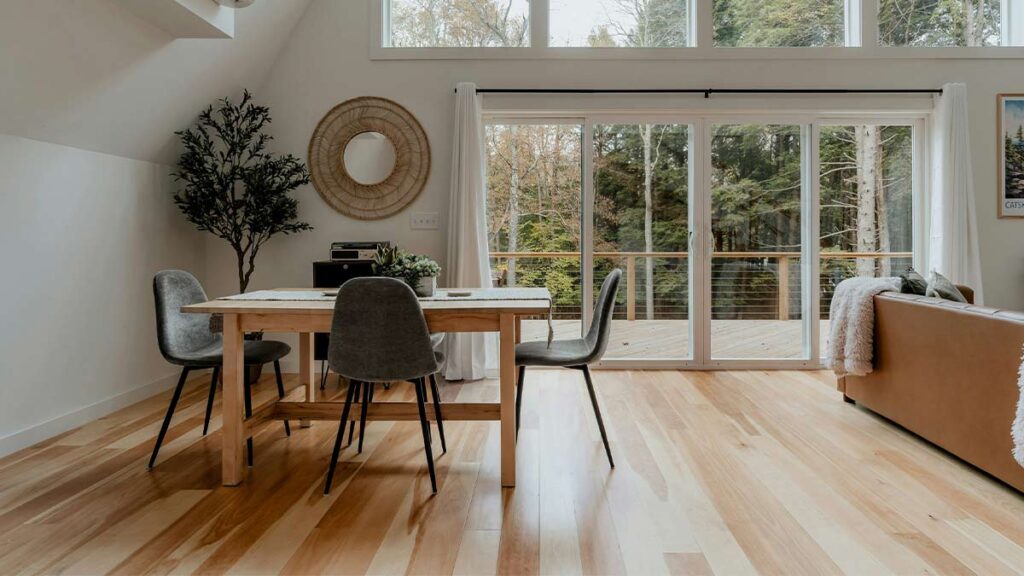Have you ever dreamt of running a successful Airbnb business but felt held back by the cost of owning a property? Here’s the good news: you don’t need to own a single piece of real estate to thrive in the short-term rental market! Whether it’s leveraging rental arbitrage or co-hosting for property owners, there are plenty of ways to run an Airbnb without owning a property.
In this article, we’ll uncover the strategies and tips that can help you launch your Airbnb venture with minimal upfront investment.
No Property, No Problem: Understanding Different Airbnb Business Models
Airbnb Rental Arbitrage
Airbnb rental arbitrage is a business model that allows individuals to earn money from short-term rentals without owning property. The concept involves leasing a property from a landlord, and then subletting it, with their consent, on platforms like Airbnb for a higher nightly rate. The profit comes from the difference between the monthly rent and the income generated from guests.
This strategy is particularly attractive for those looking to enter the Airbnb market with lower upfront costs. However, it requires careful planning, including negotiating favourable lease terms, adhering to local regulations, and creating a standout Airbnb listing.
Becoming a Short-Term Rental Property Manager
Becoming a property manager is an excellent way to tap into the Airbnb business without owning a property. As a property manager, you partner with homeowners to manage their rental listings, handle guest communications, and coordinate cleaning and maintenance.
This role allows you to earn a percentage of the rental income – typically 10-20% – while leveraging your organisational and customer service skills. To succeed, build strong relationships with property owners, stay updated on local rental regulations and on using property management tools.

Airbnb Co-Hosting
If you’re new to the hospitality industry, starting as a co-host is an excellent way to gain practical experience. It reduces the risks of Airbnb hosting by sharing responsibilities and serves as a solid stepping stone toward becoming a property manager.
Your responsibilities may include creating and optimising the Airbnb listing, handling guest enquiries, and coordinating check-ins and check-outs. In exchange, you typically earn a percentage of the revenue, often between 10-20%.
This arrangement allows you to benefit from running an Airbnb without owning a property. Besides, you can leverage your organisational and hospitality skills to enhance the property owner’s earnings.
Investing in a Vacation Rental Franchise
Vacation rental franchise is also a good option to capitalise on the booming Airbnb market without owning a property. This arrangement allows you to focus on guest experience, marketing, and maximising rental income while the property owners handle real estate ownership.
By following the franchise’s systems and utilising their tools, you can scale your business more quickly than starting from scratch. This approach is ideal for entrepreneurs who want to enter the vacation rental industry with minimised risks and a supportive network.
From Renter to Airbnb Host: Steps to Success without Owning
1. Securing the Right Properties
Running an Airbnb without owning a property begins with finding rental properties that are suitable for short-term hosting. This involves careful research, effective communication with landlords, and strategic negotiations to ensure a mutually beneficial arrangement.
Identifying Potential Properties
The first step is finding properties in high-demand locations, such as near tourist attractions, business districts, or transportation hubs. Focus on properties that match what travellers typically seek, like one- to three-bedroom units and modern amenities.
Pay attention to details such as parking availability, safety, and features like pools or outdoor spaces. These can make your listing more appealing and competitive.

Approaching Landlords with a Convincing Proposal
Many landlords might hesitate at the idea of subletting for short-term rentals, so presenting a well-thought-out proposal is crucial. Highlight the benefits for them, such as consistent rent payments and the potential for higher returns than traditional leases.
Offer reassurances about property maintenance, regular professional cleaning, and guest vetting to minimise risks. Showing landlords examples of your past successes, if applicable, or presenting a professional business plan can also boost their confidence in your ability to manage the property responsibly.
Negotiating Lease Agreements for Subletting Permissions
When landlords express interest, the next step is ensuring the lease explicitly allows for subletting and short-term rentals. This might involve negotiating terms, such as a clause outlining responsibilities for property damage, insurance coverage, and guest behaviour.
A well-negotiated lease agreement not only protects your business but also fosters trust and a long-term partnership with the landlord.
2. Legal and Regulatory Compliance
Maintaining compliance with legal and regulatory requirements is essential when operating an Airbnb without owning a property. First, research and understand local short-term rental regulations, as these vary widely by location. Some cities have strict rules on rental durations, zoning restrictions, or caps on the number of listings per host. Ignoring these laws can result in hefty fines or your listing being shut down.
Next, obtain any necessary permits or licences required to operate legally. This may include business licences, tax registrations, or short-term rental permits.
Lastly, draft comprehensive contracts to outline responsibilities and protect all parties involved. When negotiating with landlords, include clauses specifying permission to list the property on Airbnb, terms for subletting, and maintenance obligations. For guests, clear terms and conditions covering house rules, liability, and cancellation policies are essential.
Strong legal agreements help prevent misunderstandings and provide a solid foundation for your Airbnb business.

3. Financial Considerations
Running an Airbnb without owning a property requires a clear understanding of the financial aspects to ensure your business remains profitable. Here’s what to consider:
Costs and Ongoing Expenses
Costs typically include furnishing the property, purchasing essential amenities, and creating an attractive listing with professional photography. Ongoing expenses may involve rent, utilities, cleaning services, maintenance, and subscription fees for management tools.
Additionally, you might need to allocate a budget for marketing and guest welcome packages. Being aware of these costs helps you plan better and avoid unexpected financial strain.
Calculating Potential Profitability
To determine if a property is worth the investment, calculate its potential profitability using factors like the average nightly rate, occupancy rate, and monthly expenses. Research the local short-term rental market to understand demand and pricing trends.
Keep an eye on seasonal fluctuations that could impact earnings, and factor in occasional expenses like property repairs or upgrades.
Setting Up and Furnishing the Property
When setting up a vacation rental property, the goal is to create an inviting, comfortable space that appeals to guests. Decorating and furnishing the property with guest appeal in mind is essential.
Start by selecting a cohesive theme or colour scheme that reflects the area’s style and enhances the overall ambiance. Comfortable, durable furniture like cosy beds, spacious seating, and functional dining areas will make your guests feel at home. For added charm, consider using decorative elements, such as artwork, throw pillows, and plants to create a welcoming atmosphere.
Investing in essential amenities is crucial to ensure your guests have everything they need for a pleasant stay. Some must-have items include high-quality linens, towels, a fully stocked kitchen, toiletries, and reliable Wi-Fi. Don’t forget about practical items like extra phone chargers and hairdryers to make the experience even more convenient for guests.

Furnishing a vacation rental doesn’t have to break the bank. Look for budget-friendly setups by shopping at discount furniture stores, secondhand shops, or online marketplaces for gently used pieces. Opt for multi-functional furniture, such as fold-out couches or storage ottomans, to save space and reduce costs.
Another way to keep expenses low is to focus on key areas, like the living room and bedroom, while keeping other spaces functional but simple.
Optimising the Airbnb Listing
To stand out in the competitive world of Airbnb, having an optimised listing is essential for attracting potential guests. Here’s how you can elevate your property’s presence:
Writing Compelling Descriptions
A well-crafted description is key to grabbing a guest’s attention and encouraging bookings. Focus on highlighting your property’s unique features, such as its location, size, amenities, and any special touches that set it apart.
Use descriptive language that evokes an experience like “Enjoy a peaceful getaway in a modern mountain cabin.” Be clear, concise, and transparent, outlining all important details, such as check-in/check-out times, house rules, and nearby attractions.
Professional Photography
High-quality photos can make a huge difference in whether your listing gets noticed. Invest in professional photography to capture your property in the best light. Ensure each room is well-lit, clutter-free, and arranged in a way that highlights its features.
Include wide-angle shots of key spaces, like the living room, bedroom, and kitchen, as well as photos of any special amenities, such as a pool, hot tub, or outdoor space. Close-up shots of small details, like a welcoming bottle of wine or cosy bedding, can also add a personal touch. Remember, great photos help guests visualise themselves in the space, making them more likely to book.
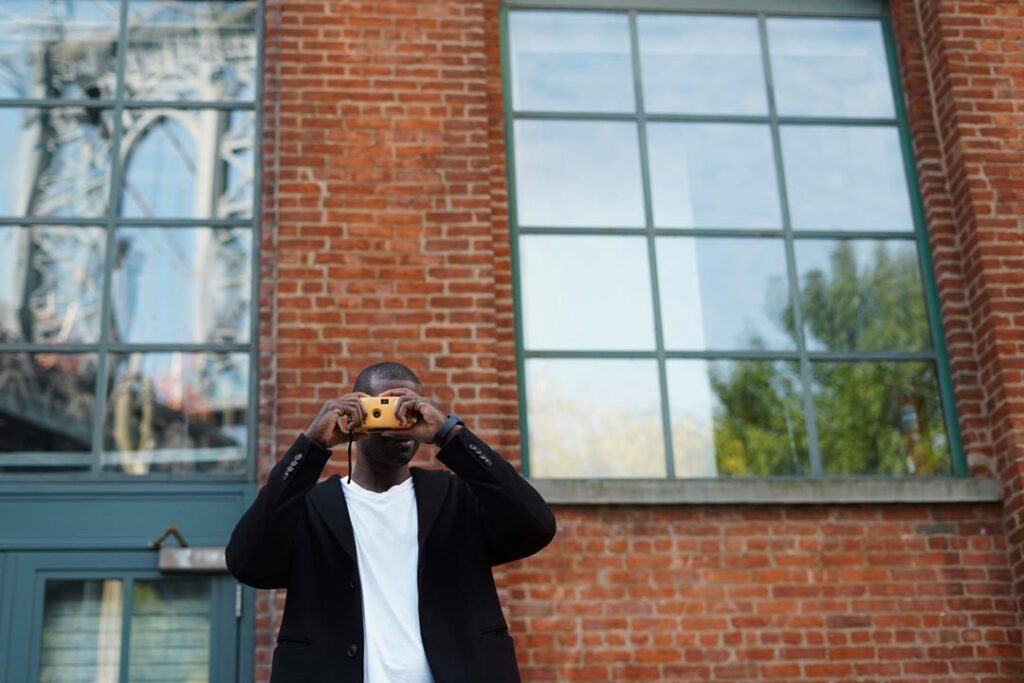
Using SEO-Friendly Keywords
To improve your listing’s visibility, use keywords that travellers are likely to search for. Think about what makes your property stand out, such as “pet-friendly,” “beachfront,” or “close to downtown.” Use these keywords strategically in your listing title and description to help your listing show up in search results.
Research common search terms relevant to your location and property type and incorporate them naturally into your content. The more relevant keywords you include, the more likely your listing will appear in search results, attracting more views and potential guests.
Leveraging Technology for Airbnb Success
In today’s competitive vacation rental market, using technology is essential for streamlining operations, enhancing guest experiences, and maximising profitability.
One of the most valuable tools is automating guest communication. By using automated messaging solutions, you can schedule automated messages for booking confirmations, check-in instructions, and post-checkout reviews. These tools not only save time but also improve consistency and guest satisfaction, leading to better reviews and repeat bookings.
For scaling operations, a Property Management System (PMS) is a game-changer.
This software helps you manage multiple listings from one dashboard, tracking bookings, guest enquiries, cleaning schedules, and even financial reporting. This centralisation simplifies management, reduces human error, and provides valuable insights to optimise your business.
Finally, dynamic pricing tools allow you to adjust your rental rates based on market demand, local events, and seasonality. By using algorithms that monitor competitor pricing and booking trends, these tools help you set competitive rates that maximise your earnings while ensuring your listing remains attractive to potential guests.
This data-driven approach helps you stay competitive and make more money, particularly during peak seasons or high-demand periods. Leveraging these technological tools not only makes managing an Airbnb easier but also more profitable.
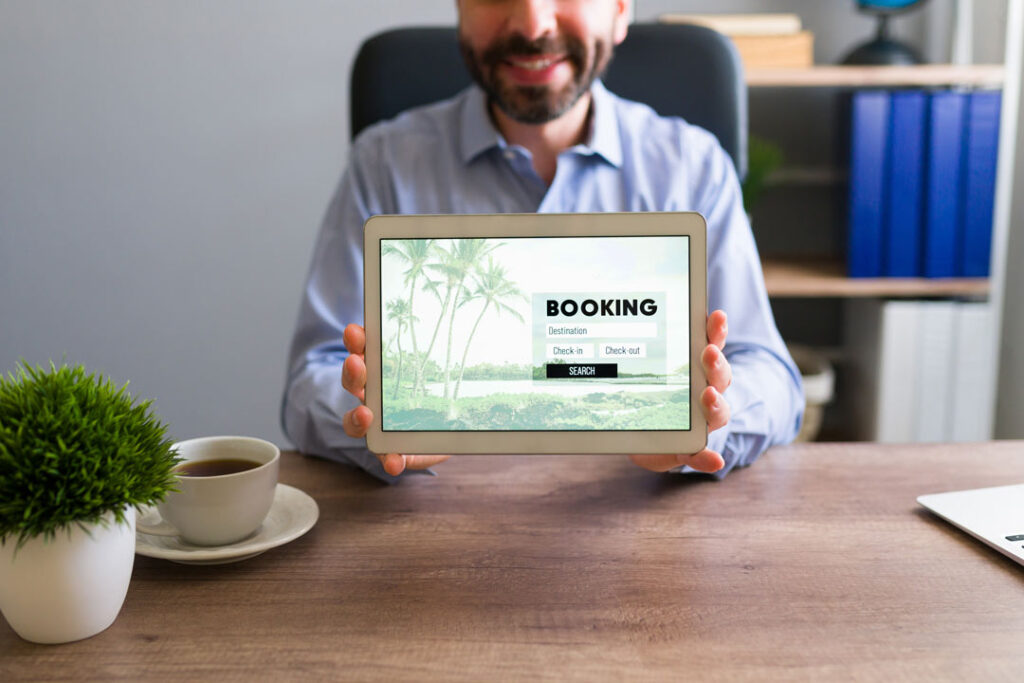
Marketing Strategies for Vacation Rentals
Effective marketing is key to ensuring your vacation rental stands out in a competitive market. One powerful strategy is using social media platforms like Instagram, Facebook, and TikTok to showcase your property and attract potential guests.
Share high-quality photos and videos that highlight the unique features of your rental. Engaging content, such as guest reviews, local tips, and behind-the-scenes posts, helps build a connection with your audience and keeps your property top of mind.
In addition to social media, partnering with local tourism boards can boost your visibility among travellers. Many tourism boards offer free listings or promotional opportunities for vacation rentals. By collaborating with them, you can tap into a network of visitors already interested in exploring the region.
Another powerful marketing tool is collaborating with influencers or travel bloggers who have a strong following. These partnerships allow you to reach a broader audience and gain credibility through trusted voices in the travel community.
More Ideas on Making Money from Airbnb without Owning a Property
Airbnb Experience Hosting
Hosting an Airbnb Experience offers a unique opportunity for entrepreneurs to earn money by creating memorable and engaging local activities. Whether it’s a guided tour, a cooking class teaching local cuisine, or an art workshop, this platform allows you to share your skills, hobbies, or local knowledge with visitors in an authentic way.
As an Experience Host, you can design activities that align with your passions, while providing tourists with unique experiences that they can’t find anywhere else. This is a great option for anyone who enjoys interacting with people and has a talent or interest that can be shared.
Airbnb Consulting
As a consultant, you guide hosts on setting up and optimising their listings, ensuring they stand out to potential guests. Your services can include crafting compelling descriptions, advising on professional photography, and offering insights into pricing strategies.
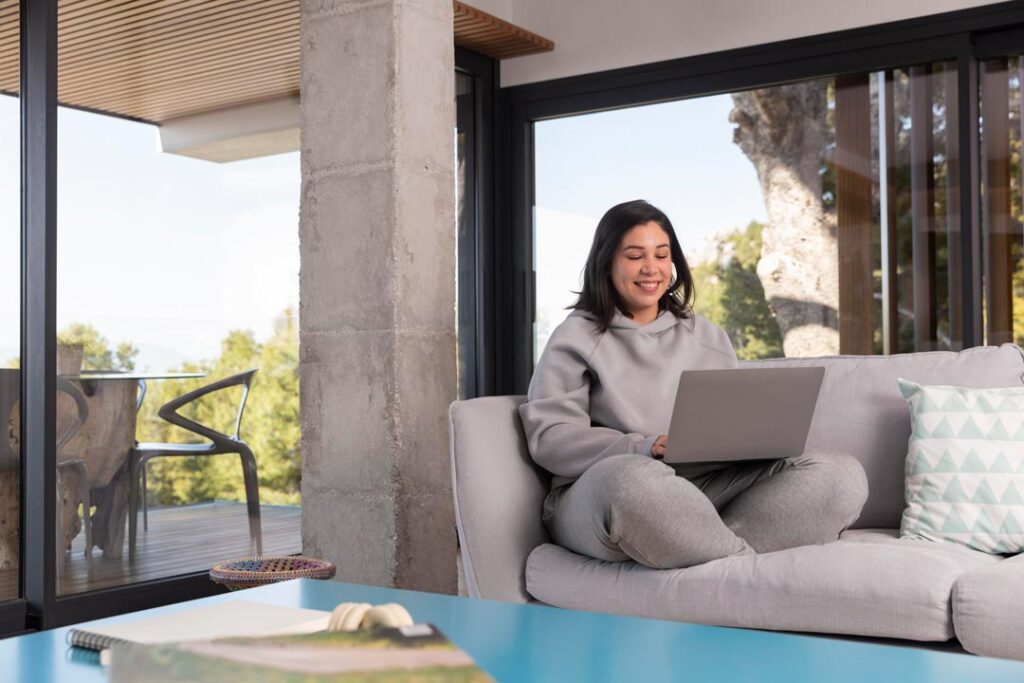
Additionally, you can provide tips on interior decor and share best practices for guest relations to maintain high reviews. By charging a flat fee or hourly rate, you create a flexible income stream while empowering hosts to achieve their goals.
Photography Services
Specialising in professional photography for Airbnb listings can be a lucrative business opportunity, as high-quality images are essential for attracting guests. A well-composed image can increase click-through rates and bookings, making your services invaluable to hosts aiming to maximise their property’s appeal.
By offering expertise in lighting, composition, and editing, you ensure that each listing stands out on crowded platforms. This niche combines creative skills with the growing demand for visual marketing in the vacation rental industry.
Furniture Leasing or Design Services
By offering furniture packages or staging services, you can help hosts create visually appealing and functional spaces. Whether through short-term leases for seasonal needs or customised design solutions, your expertise can transform a basic property into a standout rental.
This service not only saves hosts time and effort but also enhances their property’s look, making it more competitive in the short-term rental market. Additionally, offering flexible options tailored to different budgets and styles can expand your clientele and solidify your reputation as a go-to resource for Airbnb-ready interiors.
Cleaning and Maintenance Services
Hosts rely on swift and thorough turnover cleaning to ensure their properties are ready between stays. By offering specialised services, such as linen changes, deep cleaning, and routine maintenance checks, you can cater to the unique needs of vacation rental owners.
With the right team, tools, and scheduling software, you can streamline operations and manage multiple properties efficiently.
Affiliate Marketing
Affiliate marketing is an excellent way to earn passive income by operating an Airbnb without owning any property. By joining Airbnb’s affiliate programme, you can earn commissions for every booking or sign-up generated through your unique referral links.

Create engaging content and seamlessly integrate Airbnb listings or sign-up opportunities within your posts. Sharing your content on platforms like social media, email newsletters, or YouTube can further amplify your reach. This strategy allows you to monetise your love for travel and content creation while connecting your audience with valuable lodging solutions.
Content Creation for Airbnb Hosts
Content creation for Airbnb hosts is a valuable service that can significantly boost their booking rates and online visibility. By crafting engaging listing descriptions that highlight the property’s unique features, you can help hosts capture the attention of potential guests.
This service not only helps hosts stand out in a crowded marketplace but also enhances their credibility. Whether you’re a writer, designer, or marketer, offering content creation tailored to Airbnb hosts can be a rewarding business opportunity.
Airbnb Training Courses or eBooks
Creating courses or eBooks for Airbnb is an excellent way to share your expertise and generate income. By offering step-by-step guides or comprehensive video tutorials, you can teach others how to set up, manage, and scale a successful Airbnb business.
Cover topics like crafting irresistible listings, optimising pricing strategies, automating guest communication, and providing exceptional guest experiences. Include actionable tips, real-life examples, and templates to make your material engaging and practical.Remote Hosting Assistance
The virtual assistance is a growing opportunity for those looking to support Airbnb hosts without needing to be physically present. By offering virtual services, such as guest communication, reservation management, and calendar updates, you can help hosts streamline their operations.
Remote hosting assistance allows you to work flexibly from anywhere while providing invaluable support to hosts who may not have the time or expertise to handle these tasks themselves.
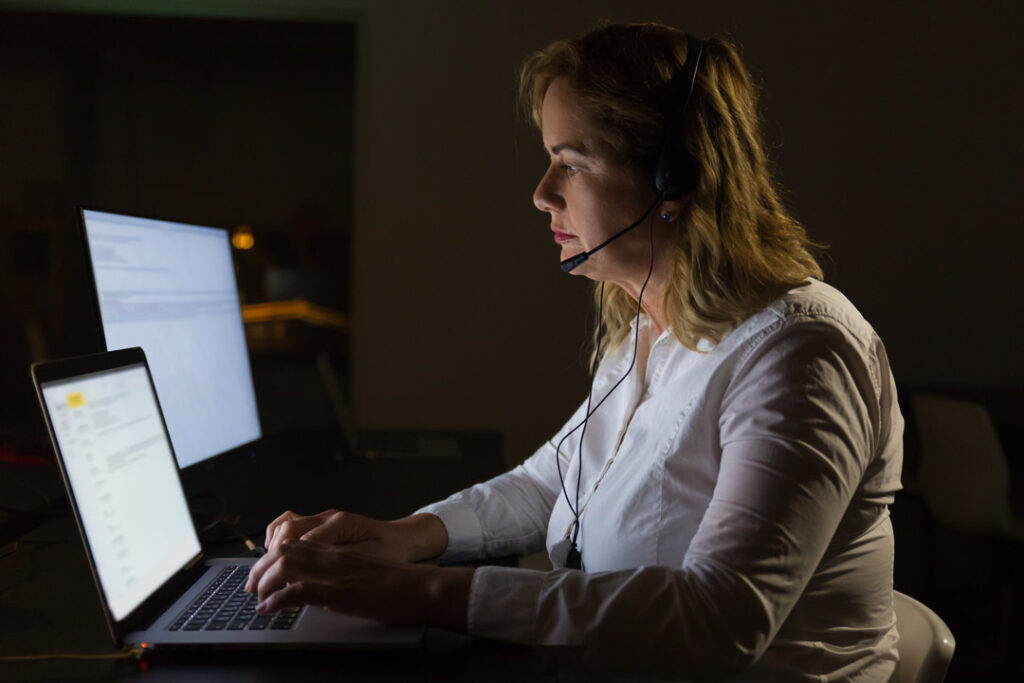
Concluding Remarks
Running an Airbnb without owning a property is possible! By leveraging strategies like rental arbitrage, co-hosting, or property management, you can build a profitable business with minimal upfront investment. Success in this field requires careful planning, a strong understanding of legal and financial considerations, and delivering exceptional guest experiences.
Whether you choose to focus on hosting, consulting, or supporting other hosts, the options are diverse and scalable. With the right approach, you can tap into the booming vacation rental market and achieve your business goals.


